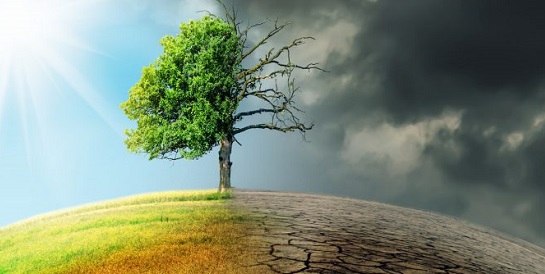The Mirror's Health , Lifestyle and Fashion

Nature-related loss
Its mission is “to develop and deliver a risk management and disclosure framework for organisations to report and act on evolving nature-related risks, with the ultimate aim of supporting a shift in global financial flows away from nature-negative outcomes and toward nature-positive outcomes”.
Advertisement
The watchwords here are “nature-related risks”, “nature-negative outcomes” and “nature-positive outcomes”.
In effect, with growing interests in climate-related risks, organisations are adopting frameworks that help to ensure that environmental, social and governance issues are part of the broader consideration as far as the conduct of their businesses is concerned.
Climate-related financial risks or nature loss and degradation, believe it or not, threaten all of us - individuals, households and businesses. In fact, the financial risk here is enormous; therefore, we ignore such risks at our own peril. The pressing issue that governments and society as a whole need to make every effort to address is the natural capital loss caused by human activity because it has severe impact on our generation and the future generation as well.
As nature underpins everything that we as humans do, I believe that we should not only leave organisations and governments to lead the charge against climate risks. We must all, as individuals, get involved to reverse the tide of nature loss and environmental degradation. In simple terms, it is nature that influences the water we drink, the air that we breathe and the creatures and plants that sustain us, so it is critical that our actions at all times seek to preserve nature and not to disturb it.
What do you anticipate would happen if we sat unconcerned and just watched as nature witnessed unprecedented and accelerating global decline caused by human activity? If you guessed right, then your guess, surely, is as good as mine!
Whereas some nature risks, in broad terms, are arguably more reversible, climate risks can be hard to manage, far-reaching and create spillover effects. And compared to climate change, nature loss and degradation is more often a local not global issue, but can also spill over to other countries. For example, countries that rely on the tourism industry to generate revenue rely on their natural assets, which can be severely affected by nature loss. Obviously, nature loss and climate change are inherently interlinked. Some of the factors - such as deforestation - that increase climate risks also negatively impact nature.
A decline in natural assets - such as air, water, land, minerals and species - impacts negatively on the quality of life generally and results in a reduced standard of living. The real economy and those dependent on “ecosystem services” suffer the most when there is a decline in natural assets.
Now, let us look at some practical examples. The first impact point that I would like to explain is the provision of freshwater, which is a growing global issue. According to available data, freshwater demand is expected to exceed supply by 40 per cent by 2030. And the World Bank estimates water scarcity could impact GDP by up to six per cent by 2050 in some regions, such as the Middle East and the Sahel in Africa. Of course, this would affect agriculture, health and incomes— and the disruption in economic activities likely to create the ripple effects of asset declines, lower profitability and decline in collateral values for peasant farmers.
This would affect financial inclusion initiatives negatively, heighten financial risks for firms exposed to “ecosystem services” and could also lead to heightened credit, market and liquidity risks. Yes, this is what could happen when the provision of freshwater is hampered by poor human activities such as unregulated mining activities, pollution through oil spillovers or through poor management of forest reserves, among others. This example helps show how physical nature-based changes can affect everyone.
The next risk that l would like to talk about is air pollution, as issues bordering on air pollution have gained prominence in recent times. As I explained in the November 7, 2019 edition of this column, there are concerns that in our current pursuit of wealth or even in the conduct of mundane activities, we may be causing lasting damage to the environment that could threaten both human and plant life in the future.
“Here, it must be pointed out that this human-induced ozone depletion activity is not a recent phenomenon as these concerns were raised in the last two centuries also. For instance, the industrial revolution, captured to have started from the mid-18th century to about 1830 and resurrected in the mid-19th century and also part of the 20th century, had critics complaining about the attendant industrial pollution.
This is because the fuels that had brought about industrial success, such as coal, were deemed unclean. Researchers and scientists were of the view that air pollution from coal-fired power plants was linked with asthma, cancer, heart and lung ailments, neurological problems, acid rain, global warming and other severe environmental and public health impacts. This is what l wrote exactly three years ago, and it bears repeating today.
“Fast forward to the 21st century, and we still find column inches of newspapers and magazines filled with stories about the negative impact of climate change on life in general. What is significant this century though is that whereas in the past environmental activists and other campaigners were the ones struggling to gain the world’s attention about climate change and the need for behavioural change, today, the financial press is also the medium through which most concerns are expressed,” I wrote in the reference edition.
There is, indeed, a need for a comprehensive global policy framework to address nature loss because a global commitment to deliver a “net zero for nature” measurement would help mitigate the risk— and serve as the springboard for other policies to be developed to address this threatening issue. Meanwhile, it behoves all of us to adopt the right attitude and action to preserve nature.
[email protected]




